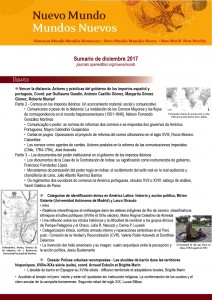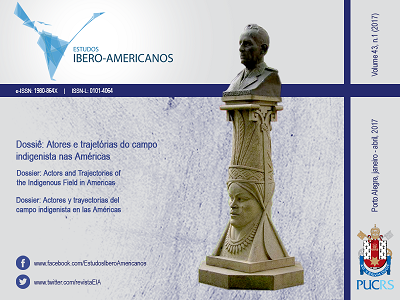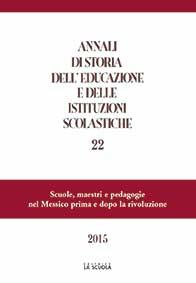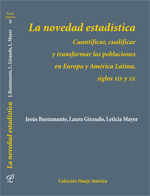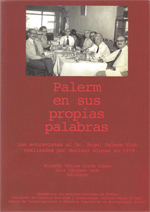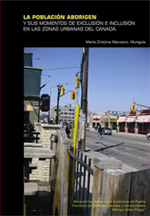Publications
 A Modern Coloniality: The Indigenistas’ “Indian of the Americas”
A Modern Coloniality: The Indigenistas’ “Indian of the Americas”
Laura Giraudo
Historia Crítica, 75 (2020)
Abstract: The article studies the continental concept of Indian disseminated by the
indigenistas who, in the mid-twentieth century, were shaping a Pan-American indigenista field. Against the common idea that Indian is a colonial category, it suggests that the twentieth century characterization of the Indian was a typically modern creation. It is based on an analysis of unexplored printed primary sources, from a transnational approach that highlights the participation of indigenistas of different backgrounds and origins in the search for a continental notion of Indian. The analysis shows how the indigenista contribution reinforces an ongoing process of singularization and abstraction of this concept, also emphasizing the temporary ascription of the Indian and a history of domination and exploitation with effects up to the present day. Although this “Indian of the Americas” is shaped by typically modern elements, indigenistas defend the idea that it is a “colonial category”, determined by a colonial heritage (with effects on “character”) and by the persistence of a colonial situation/relationship. This indigenista resignification would represent an important legacy for later developments, by establishing the experience of colonization as an essential element in the definition of the Indian.
Keywords: coloniality, Indian (of the Americas), indigenismo, indigenistas, modernity, twentieth century.
Open Access: https://doi.org/10.7440/histcrit75.2020.04
 Between «Spanish indigenista Policy» and «Unrestrained
Between «Spanish indigenista Policy» and «Unrestrained
Indigenismo»: The Anuario de Estudios Americanos
and the «Other Journal» of Seville
Laura Giraudo
Anuario de Estudios Americanos, 75/2 (2018)
Abstract: The author analyzes the presence and meanings of indigenismo in Anuario de Estudios Americanos from 1944 to 1996 and in the other journal published in Seville (1948-
1961), Estudios Americanos. Revista de Síntesis e Interpretación, aiming to especially highlight
the Spanish view of the indigenista movement in its golden age, in the mid-twentieth
century. Two starkly different images of indigenismo emerged, depending on the association
with the Spanish policy in America or on the association with the contemporary movement,
with a clear leading role in each case of one or the other of the two journals.
Link to PDF
|
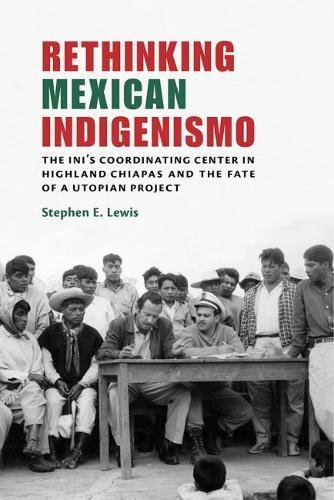 |
 |
 |
|
Estudos Ibero-Americanos v. 43, n. 1 (2017)
Oscar Calavia Sáez and Juan Martín Sánchez (eds.) http://revistaseletronicas.pucrs.br/fo/ojs/index.php/iberoamericana/issue/view/1108 Contents Introduction: Actores y trayectorias del campo indigenista en las Américas
Oscar Calavia Sáez, Juan Martín Sánchez
Articles
Idle No More: del reconocimiento al resurgimiento indígena en Canadá
Isabel Altamirano, Julian Castro-Rea
“Where does the Indian begin and where does it end?”: Legal-Criminal Categories in Peru, 1920s-1940s, and two Bolivian cases from the 1940s
Lior Ben David
Roubos, trocas e comércio ilegal como motivadores da reprodução social entre os índios do Chaco
Guilherme Galhegos Felippe
Isolados e ilhados: indigenismo e conflitos no Vale do Javari, Amazônia
Barbara Arisi, Felipe Milanez
Comunidades, patrimonio y arqueólogos: relaciones entre municipios e instituciones culturales de Oaxaca en el periodo indigenista
Manuel Burón Díaz
Celebrar a los indígenas, defender al indigenismo: el “Día del Indio” y el Instituto Indigenista Interamericano
Laura Giraudo
Virar o redemoinho da injustiça: teatro, campesinato peruano e denúncia social em Víctor Zavala
Emilio J. Gallardo-Saborido
Etnologia aplicada e indigenismo no México: a trajetória de Salomon Nahmad vista do Brasil
Max Maranhão Piorsky Aires
Marechal Rondon e a Trajetória de um Militar Sertanista na Primeira República Brasileira: Investigação sobre a Intervenção do Estado e o Processo Civilizador da População Indígena
Fernando da Silva Rodrigues
Book reviews
Políticas públicas de saúde e indigenismo na América Latina
Nadia Heusi Silveira
State Projects and Indigenous Mobilization in Late Twentieth Century Mexico
Alan Shane Dillingham
Enterview
Cuatro discusiones sobre Antropología, Historia y sus muchos indígenas en América Latina: entrevistas a Guillermo de la Peña, Joanne Rappaport, Núria Sala y Víctor Bretón
Juan Martín-Sánchez
|
For more: Presses Universitaries de Rennes |
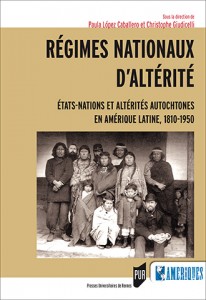 |
 INDIGENISMO OCCUPIED: Indigenous Youth and Mexico’s Democratic Opening (1968–1975)
INDIGENISMO OCCUPIED: Indigenous Youth and Mexico’s Democratic Opening (1968–1975)
Alan Shane Dillingham
THE AMERICAS, vol. 72, n. 4, October 2015, pp. 549–582
DOI: http://dx.doi.org/10.1017/tam.2015.67
 Relativizando la historicidad. Memoria social, cosmología y tiempo en los Andes
Relativizando la historicidad. Memoria social, cosmología y tiempo en los Andes
Ricardo Cavalcanti-Schiel
Quaderns-e 20 (2) 2015: Més enllà d’una dicotomia enganyosa: reflexions sobre l’antropologia històrica.
Edited by Alexandre Coello de la Rosa and Josep Lluís Mateo Dieste
![]() «Antropologia no México e a invenção do intelectual indígena», Max Maranhão Piorsky Aires, Antípoda. Revista de Antropología y Arqueología, 20, septiembre-diciembre, 2014, pp. 73-93.
«Antropologia no México e a invenção do intelectual indígena», Max Maranhão Piorsky Aires, Antípoda. Revista de Antropología y Arqueología, 20, septiembre-diciembre, 2014, pp. 73-93.
![]() Juan Martín Sánchez «Vivanco Guerra, Alejandro: Una etnografía olvidada de los Andes. El valle del Chancay (Perú) en 1963, Edición crítica de Juan Javier Rivera Andía, Madrid, CSIC, 2012»,
Juan Martín Sánchez «Vivanco Guerra, Alejandro: Una etnografía olvidada de los Andes. El valle del Chancay (Perú) en 1963, Edición crítica de Juan Javier Rivera Andía, Madrid, CSIC, 2012»,
Anuario de Estudios Americanos, 70, 2, julio-diciembre, 2013, 781-784.
[link to pdf]
![]() Dos debates medulares sobre el concepto de raza, 1943-1952
Dos debates medulares sobre el concepto de raza, 1943-1952
Laura Giraudo y Juan Martín Sánchez
Revista Mexicana de Sociología, 75/4, octubre-diciembre 2013: 527-555
![]() José Uriel García. Amoroso estudioso de la cultura andina
José Uriel García. Amoroso estudioso de la cultura andina
Osmar Gonzales, 2013.
[link to pdf]
Andrae M. Marak and Laura Tuennerman The University of Arizona Press, 2013 [link to pdf] |
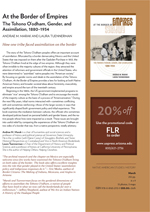 |
Bolivia, 1842-1932 Gary Van Valen The University of Arizona Press, 2013 [link to pdf] |
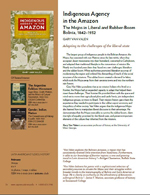 |
![]() «Interindi: una nueva perspectiva de investigación acerca del indigenismo»
«Interindi: una nueva perspectiva de investigación acerca del indigenismo»
Laura Giraudo y Juan Martín Sánchez,
Historiografías, revista de historia y teoría, 4 (julio-diciembre, 2012), pp. 84-100
http://www.unizar.es/historiografias/numeros/4/giraudo.pdf
Latin American Perspectives September 2012, 39 (5) Rethinking Indigenismo on the American Continent http://lap.sagepub.com/content/39/5.tocTable of ContentsIntroduction Pan-American Indigenismo (1940-1970): New Approaches to an Ongoing Debate Laura Giraudo and Stephen E. Lewis Latin American Perspectives 2012;39 3-11Articles Neither «Scientific» nor «Colonialist»: The Ambiguous Course of Inter-American Indigenismo in the 1940s Laura Giraudo Latin American Perspectives 2012;39 12-32 The Instituto Indigenista Peruano: A New Place in the State for the Indigenous Debate Osmar Gonzales Latin American Perspectives 2012;39 33-44 The Limits of Indigenismo in Ecuador Marc Becker Latin American Perspectives 2012;39 45-62 Indigenista Dreams Meet Sober Realities: The Slow Demise of Federal Indian Policy in Chiapas, Mexico, 1951-1970 Stephen E. Lewis Latin American Perspectives 2012;39 63-79 Histories and Memories of the Indian Boarding Schools in Mexico, Canada, and the United States Alexander S. Dawson Latin American Perspectives 2012;39 80-99Commentary From Integrationist Indigenismo to Neoliberal De-Ethnification in Chiapas: Reminiscences Mercedes Olivera Latin American Perspectives 2012;39 100-110Book Review Indigenous Policy in Twentieth-Century Latin America Diana Schwartz Latin American Perspectives 2012;39 111-116 |
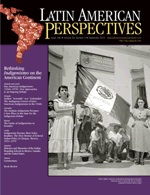 |
campo interamericano y trayectorias nacionales, 1940-1970 Laura Giraudo e Juan Martín-Sánchez (editores) Lima: Instituto de Estudios Peruanos, 2011.Index Introducción; p.9-20 1. Un campo indigenista transnacional y ‘casi profesional’: la apertura en Pátzcuaro (1940) de un espacio por y para los indigenistas Laura Giraudo; p.21-98 2. El indigenismo guatemalteco: atrapado entre la promesa del interamericanismo y la guerra fríaAbigail E. Adams; p.99-132 3. El Instituto Indigenista Peruano: una historia por conocer Osmar Gonzales; p.133-158 4. El peyote y la autodeterminación a lo largo de la frontera entre Estados Unidos y México, desde Pátzcuaro hasta Avándaro Alexander Dawson; p.159-190 5. Indigenismo bifronte en el gobierno peruano de Velasco Alvarado: continuidad y alternativa, sierra y selva Juan Martín-Sánchez; p.191-250 6. ¿‘Problema indígena’ o ‘problema ladino’? Cincuenta años de pensamiento y políticas indigenistas en Chiapas, México Stephen E. Lewis; p.251-292 Sobre los autores; p.293 [enlace al pdf] |
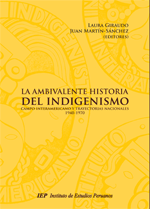 |
![]() «Modernizing Message, Mystical Messenger: The Appropriation of the Teatro Petul in the Chiapas Highlands, 1954-1974»
«Modernizing Message, Mystical Messenger: The Appropriation of the Teatro Petul in the Chiapas Highlands, 1954-1974»
Stephen E. Lewis
The Americas. A Quarterly Review of Inter-American Cultural HistoryVol. 67, n. 3 (2011), pp. 375-397.
http://www.drexel.edu/theamericas/
![]() Dossier «Forjando un México nuevo: revolución, nación y cultura en el México posrevolucionario» (L. Giraudo, Coord.)
Dossier «Forjando un México nuevo: revolución, nación y cultura en el México posrevolucionario» (L. Giraudo, Coord.)
Authors: Anne Marie McGee, Stephen E. Lewis, Alicia Civera Cerecedo, Susana Sosenski, Laura Giraudo.
Anuario de Estudios Americanos
Vol. 67, N. 2 (2010)
http://estudiosamericanos.revistas.csic.es/
![]() Monopolio de aguardiente y alcoholismo en los Altos de Chiapas: Un estudio «incómodo» de Julio de la Fuente (1954-55)Margarita Sosa Suárez (coord.)
Monopolio de aguardiente y alcoholismo en los Altos de Chiapas: Un estudio «incómodo» de Julio de la Fuente (1954-55)Margarita Sosa Suárez (coord.)
Stephen E. Lewis (selección de textos e introd.)
México
Comisión Nacional para el Desarrollo de los Pueblos Indígenas 2009
pp. 383
ISBN
Laura Giraudo Roma Carocci Quality paperbacks 2009 pp. 152 ISBN 9788843049783 http://www.carocci.it/ |
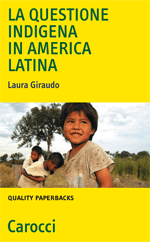 |
![]() El Instituto Indigenista Interamericano y la participación indígena (1940-1998)
El Instituto Indigenista Interamericano y la participación indígena (1940-1998)
Laura Giraudo
América Indígena
México, Instituto Indigenista Interamericano, Vol. LXII, n. 3
Julio-Septiembre 2006, pp. 6-34
ISSN: 0185-1179
[link to pdf]
![]() No hay propiamente todavía Instituto: los inicios del Instituto Indigenista Interamericano (abril 1940-marzo 1942)
No hay propiamente todavía Instituto: los inicios del Instituto Indigenista Interamericano (abril 1940-marzo 1942)
Laura Giraudo
América Indígena
México, Instituto Indigenista Interamericano, Vol. LXII, n. 2
Abril-Junio 2006, pp. 6-32
ISSN: 0185-1179
[link to pdf]

